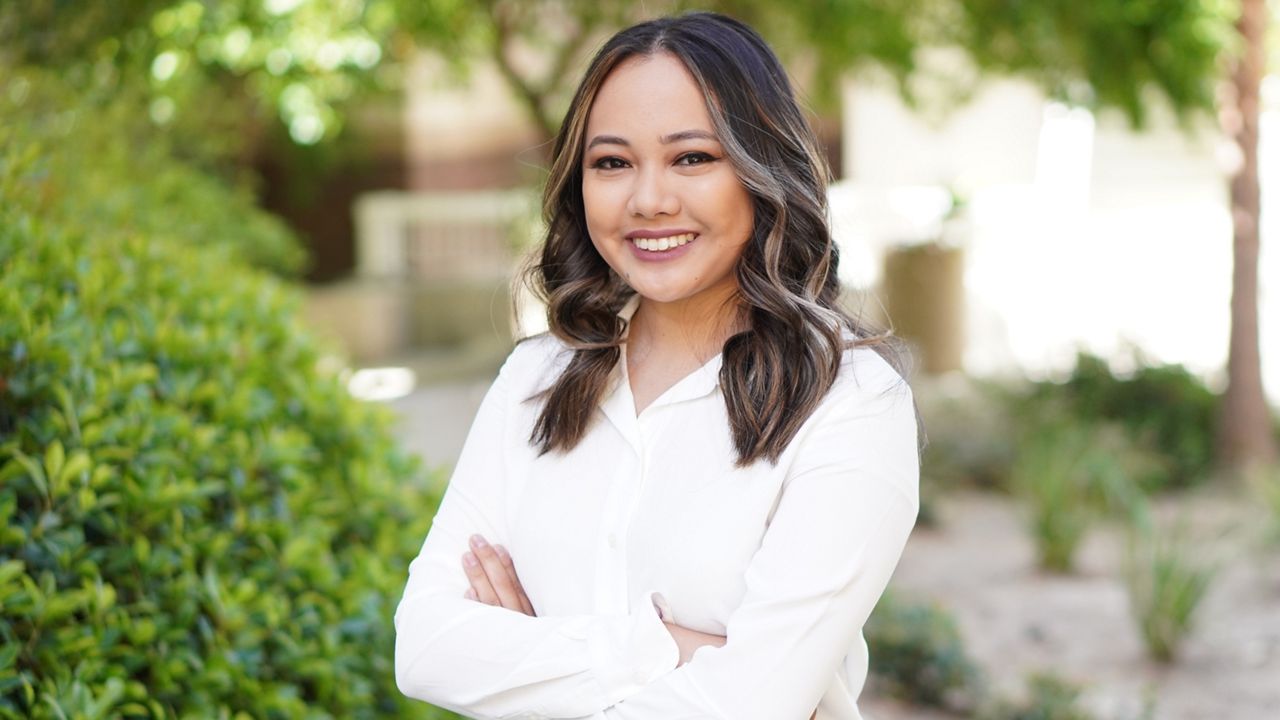IRVINE, Calif. — A White House forum on youth mental health has one University of California, Irvine doctoral candidate readying a presentation.
The White House issued plans for the summit shortly after the State of The Union address in which President Joseph R. Biden committed to providing resources and ideas to curbing the problem.
Billed as the Mental Health Youth Action Forum, such noted figures as actress Selena Gomez and first lady Jill Biden are scheduled to speak. The forum, presented along with MTV, kicks off Tuesday, May 17, at a dinner at the Smithsonian Museum of Science, and focuses on young people, or roughly 10 to 25-year-olds.
That’s about the target demographic UCI student Justine Bautista, 23, plans to aim for her presentation. She’ll co-present the concept for a podcast called “Mind In Progress,” an idea she and her partner are still developing. Bautista said the podcast would feature a young person, likely between 18 and 25, discussing mental health with the second half of the show featuring a mental health professional who can offer commentary.
Bautista, who was accepted to the summit after an application and interview, looked into currently produced podcasts like the one she wanted to do.
“Very few times it’s by young people or for young people, and fewer times it’s with a mental health professional,” she said.
Bautista, who is currently pursuing her doctorate in the school of Social Ecology, has focused on digital mental health. It’s a vast area of study that includes how social media can affect people, especially children and people in early adulthood, and what kinds of apps and other online tools can assist them. Her academic work has drilled down on the specific tools that exist on smartphones and the internet. Her portion of the presentation focuses on these tools, how the podcast can direct people toward the “mental health tool box” and how it can help them.
“I think it’s so important to present a bunch of different options when you’re asking them to select tools because everyone’s needs are different,” she said.
Those tools can range from various apps, telehealth platforms or any of a broad number of organizations a person can go to for in-person counsel.
Mental health has drawn increasing attention from local governments, school boards and health professionals. Some clinicians have described mental illness as an epidemic, with academic institutions and even some businesses allowing time and resources for people in crisis or simply in need of a break.
Bautista believes social media is a piece of the problem.
“You’re never going to be able to take away social media, and you’re never going to take away their smartphones,” she said. “It’s just about meeting them where they are.”
That means better researched and more effective platforms that people glued to their phones may plug into before they power down for the night.
Bautista is scheduled to deliver her presentation May 18 on the second day of the two-day event.



